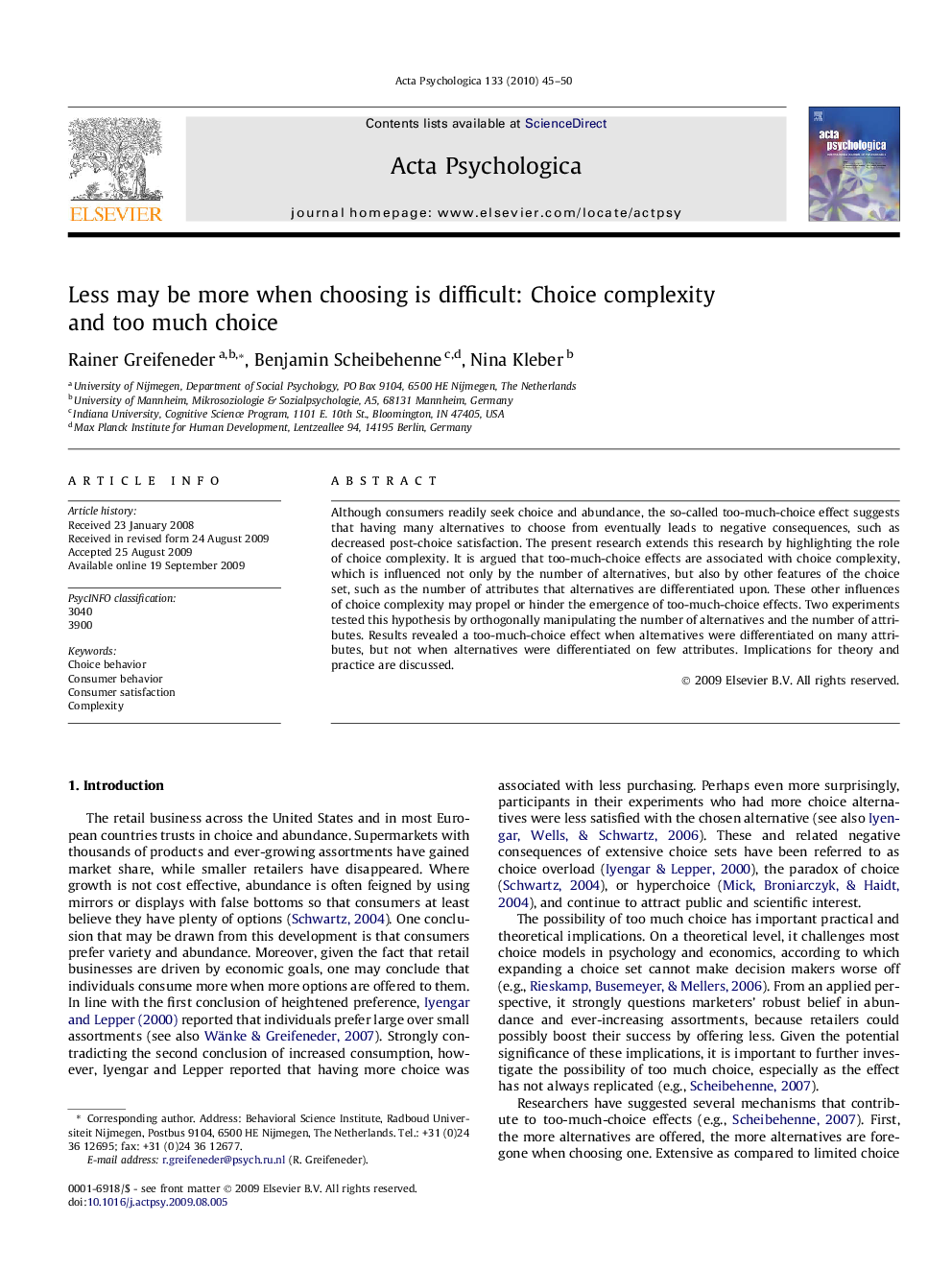| Article ID | Journal | Published Year | Pages | File Type |
|---|---|---|---|---|
| 920204 | Acta Psychologica | 2010 | 6 Pages |
Although consumers readily seek choice and abundance, the so-called too-much-choice effect suggests that having many alternatives to choose from eventually leads to negative consequences, such as decreased post-choice satisfaction. The present research extends this research by highlighting the role of choice complexity. It is argued that too-much-choice effects are associated with choice complexity, which is influenced not only by the number of alternatives, but also by other features of the choice set, such as the number of attributes that alternatives are differentiated upon. These other influences of choice complexity may propel or hinder the emergence of too-much-choice effects. Two experiments tested this hypothesis by orthogonally manipulating the number of alternatives and the number of attributes. Results revealed a too-much-choice effect when alternatives were differentiated on many attributes, but not when alternatives were differentiated on few attributes. Implications for theory and practice are discussed.
